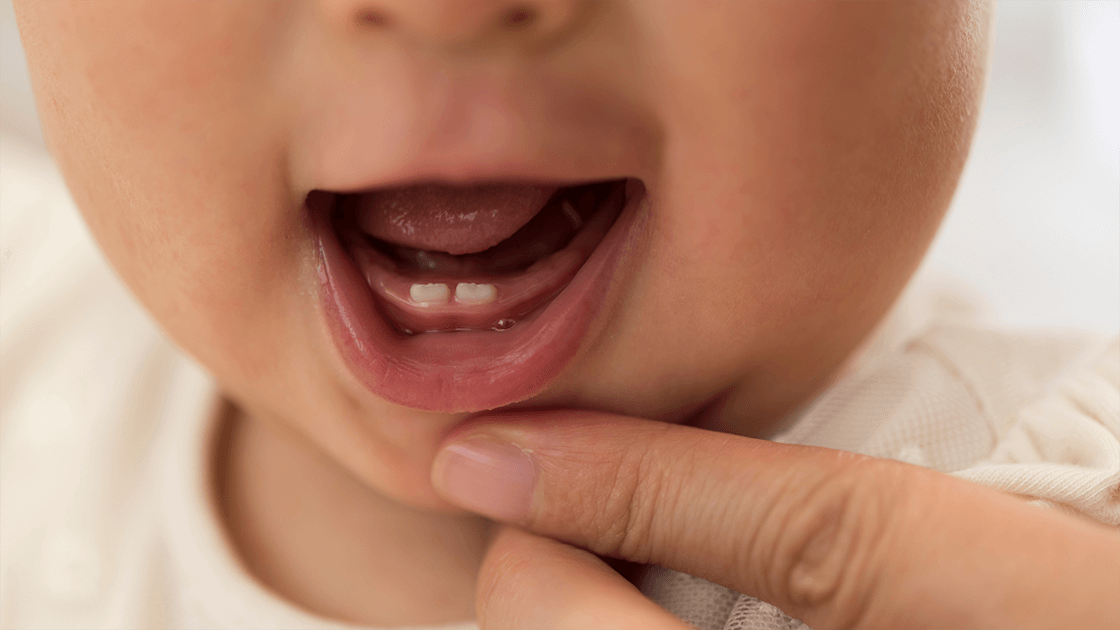
02 Jan How Can I Soothe My Teething Baby?
3 min. readTeething is an exciting milestone, but it can also be challenging for both babies and parents. As those tiny teeth begin to push through the gums, your baby may experience discomfort, fussiness, and disrupted sleep. While teething is a natural process, it’s not always easy to watch your little one struggle. The good news is that there are many ways to soothe your baby and make this phase more comfortable for everyone.
Understanding Teething Symptoms
Teething symptoms can begin as early as 4 to 6 months, though every baby is different. Common signs of teething include:
- Drooling: You might notice more drool than usual.
- Chewing on Objects: Babies often chew on toys, fingers, or anything they can find to relieve pressure on their gums.
- Irritability: Your baby may seem fussier than normal.
- Swollen or Red Gums: The gums may appear tender or inflamed where a tooth is coming in.
- Changes in Sleep or Appetite: Discomfort can make it harder for your baby to eat or sleep.
If your baby has a fever over 100.4°F, diarrhea, or a rash, these are not typical teething symptoms and should be discussed with a pediatrician.
Tips to Soothe Your Teething Baby
There’s no one-size-fits-all solution, but these strategies can help relieve your baby’s discomfort:
1. Offer Something Cold
Cold items can numb sore gums and reduce inflammation. Try:
- A chilled (not frozen) teething ring.
- A cold, damp washcloth for your baby to chew on.
- Cold fruit like chilled bananas or cucumbers in a mesh feeder (for babies who have started solids).
2. Provide Gentle Pressure
Chewing helps relieve the pressure from teeth pushing through the gums.
- Offer a soft, BPA-free teething toy.
- Gently massage your baby’s gums with a clean finger.
3. Use Over-the-Counter Pain Relief (If Needed)
If your baby is particularly uncomfortable, consult your pediatrician about using baby-safe pain relievers like acetaminophen or ibuprofen. Avoid teething gels with benzocaine, as they are not recommended for infants.
4. Distract with Comforting Activities
Sometimes, extra cuddles and soothing activities can make a big difference.
- Rock your baby or wear them in a carrier for extra comfort.
- Sing or play calming music to help distract them from the discomfort.
5. Maintain a Routine
Stick to your baby’s regular feeding and sleep schedule as much as possible. Familiar routines can provide a sense of security during this uncomfortable time.
What to Avoid
While there are many helpful remedies, some options can do more harm than good. Avoid:
- Frozen Teething Rings: These can be too hard and cause additional irritation.
- Teething Necklaces: These pose choking and strangulation risks.
- Medicated Teething Products: Teething gels with benzocaine or lidocaine can be unsafe for infants.
Teething Is Temporary
While teething can feel like a challenging phase, it’s important to remember that it’s temporary. Most babies get their first tooth between 6 and 12 months, and by age 3, they typically have a full set of primary teeth. With a little patience and some tried-and-true soothing techniques, you can help your baby navigate this milestone with more comfort.
Need more tips or have concerns about your baby’s teething? Our team is here to support you. Contact us today to schedule a visit or speak with one of our pediatric experts. Together, we’ll make sure your baby’s smile is healthy and happy for years to come.

